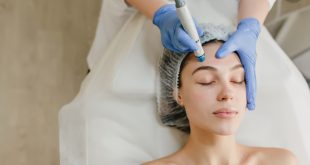In our fast-paced, modern world, stress has become an almost unavoidable part of daily life. While it’s well-known that chronic stress can have serious implications for mental and physical health, its effects on the skin are often overlooked. The skin, our body’s largest organ, is not just a passive barrier against the environment; it plays an active role in responding to internal and external stimuli. The mind-body connection, particularly the link between stress and skin health, is a fascinating and complex area of study that reveals how deeply interconnected our psychological state and physical health truly are.
This blog explores the various ways stress affects the skin, the underlying biological mechanisms, and effective strategies for managing stress to maintain healthy skin.
Understanding the Mind-Body Connection
The Psychological and Physical Response to Stress
Stress triggers a cascade of physiological responses in the body, primarily mediated by the endocrine and nervous systems. When the brain perceives a threat or challenge, it activates the hypothalamic-pituitary-adrenal (HPA) axis, leading to the release of cortisol, often referred to as the “stress hormone.” While short-term stress responses are essential for survival, chronic activation of this system can have deleterious effects on various bodily functions, including skin health. For those seeking advanced skin rejuvenation, treatments like Morpheus8 Dubai offer innovative solutions to counteract the effects of stress and aging on the skin.
The Skin as a Stress-Responsive Organ
The skin is not merely an inert covering; it is an active, sensory organ that plays a crucial role in immune response and regulation. It is equipped with numerous nerve endings, blood vessels, and immune cells that allow it to respond to internal and external stimuli. This responsiveness makes the skin particularly susceptible to the effects of psychological stress.
How Stress Affects the Skin
1. Increased Inflammation
Chronic stress can lead to elevated levels of cortisol in the body. While cortisol has anti-inflammatory properties in the short term, prolonged exposure can suppress the immune system and increase inflammation. This paradoxical effect can exacerbate skin conditions such as acne, eczema, and psoriasis. To address these stress-induced skin issues, treatments like Lumecca Dubai can help by targeting pigmentation and improving overall skin health.
- Acne: Stress can increase the production of sebum, the oily substance that clogs pores and leads to acne breakouts. Additionally, stress-induced inflammation can worsen the severity of acne lesions.
- Psoriasis: A chronic autoimmune condition characterized by red, scaly patches on the skin, psoriasis can flare up during periods of stress due to increased inflammatory activity.
- Eczema (Atopic Dermatitis): Stress can trigger flare-ups in individuals with eczema, leading to itchy, inflamed skin.
2. Accelerated Aging
Stress contributes to the acceleration of skin aging through several mechanisms:
- Oxidative Stress: Cortisol can increase the production of free radicals, unstable molecules that damage cellular structures, including collagen and elastin fibers. This damage leads to the formation of wrinkles, fine lines, and a loss of skin elasticity.
- Reduced Collagen Production: Chronic stress can inhibit the synthesis of collagen, a key protein responsible for skin firmness and elasticity. Reduced collagen levels can lead to sagging and thinning skin.
3. Impaired Skin Barrier Function
The skin’s barrier function is critical for retaining moisture and protecting against environmental aggressors. Stress can impair this barrier by disrupting the production of lipids and natural moisturizing factors in the skin. An impaired barrier can lead to:
- Dryness and Dehydration: Reduced moisture levels can make the skin appear dull and flaky.
- Increased Sensitivity: An impaired barrier can make the skin more susceptible to irritants, allergens, and pollutants, leading to increased sensitivity and redness.
4. Hair and Scalp Issues
Stress can also affect the scalp and hair health:
- Hair Loss: Conditions such as telogen effluvium, where a large number of hair follicles enter the resting phase, can be triggered by significant stress, leading to noticeable hair thinning and loss.
- Scalp Conditions: Stress can exacerbate scalp conditions like dandruff, seborrheic dermatitis, and scalp psoriasis.
5. Delayed Wound Healing
Chronic stress can slow down the skin’s natural healing processes. This is particularly concerning for individuals with conditions that cause frequent skin damage, such as acne, eczema, or injuries. Delayed healing increases the risk of infection and scarring.
Managing Stress for Healthier Skin
Skincare Practices
- Gentle Cleansing:
- Use mild, non-irritating cleansers to remove dirt, oil, and pollutants without stripping the skin of its natural oils. Over-cleansing can exacerbate dryness and sensitivity, especially in stressed skin.
- Hydration and Moisturization:
- Keeping the skin well-hydrated is crucial for maintaining its barrier function. Choose moisturizers that contain ceramides, hyaluronic acid, and glycerin to lock in moisture and protect the skin.
- Antioxidant Protection:
- Incorporate antioxidant-rich products, such as serums containing Vitamin C, Vitamin E, and green tea extract, into your skincare routine. These can help neutralize free radicals and reduce oxidative stress.
- Sun Protection:
- Daily use of a broad-spectrum sunscreen with SPF 30 or higher protects the skin from UV damage, which can be exacerbated by stress-related skin vulnerability.
Also Read: Managing Anxiety in High-Stress Professions
Lifestyle and Mental Health Strategies
- Mindfulness and Relaxation Techniques:
- Practices such as meditation, deep breathing exercises, and yoga can help reduce stress levels by promoting relaxation and a sense of calm.
- Physical Exercise:
- Regular physical activity boosts endorphin levels, the body’s natural mood elevators, and helps reduce cortisol levels. Exercise also improves circulation, delivering oxygen and nutrients to the skin.
- Adequate Sleep:
- Quality sleep is essential for skin repair and regeneration. Aim for 7-9 hours of sleep per night and establish a consistent sleep routine.
- Balanced Diet:
- A diet rich in antioxidants, omega-3 fatty acids, and vitamins supports skin health. Include plenty of fruits, vegetables, whole grains, and lean proteins in your diet.
- Professional Support:
- If stress becomes overwhelming or unmanageable, seeking support from a mental health professional can be beneficial. Cognitive-behavioral therapy (CBT) and counseling can provide effective strategies for managing stress.
Conclusion
The intricate relationship between stress and skin health underscores the importance of holistic self-care. Understanding how psychological stress impacts the skin can empower individuals to take proactive steps in managing their mental and physical well-being. By adopting effective skincare practices, lifestyle adjustments, and stress management techniques, it is possible to mitigate the adverse effects of stress on the skin and maintain a healthy, radiant complexion. As research in this field continues to grow, the mind-body connection will undoubtedly reveal even more about the profound ways in which our thoughts, emotions, and overall well-being are interlinked with our skin health.
Also Read: How Effective Are Your Slimming Treatments?
 Daily Blogger News Stay updated with the latest trends and insights. Your reliable source for daily updates and information.
Daily Blogger News Stay updated with the latest trends and insights. Your reliable source for daily updates and information.







